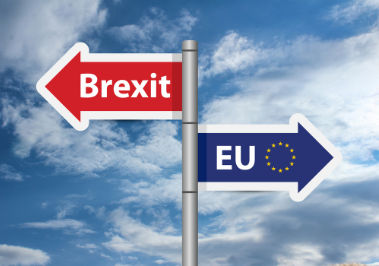‘No-deal’ Brexit not an Option for Children and Young People


The paper sets out a number of areas where the UK Government can act to protect the rights, best interests and outcomes for children in Northern Ireland to help them live healthy, full and decent lives post ‘Brexit’.
Koulla said, “While there has been much debate around the economy, industry and the impact on goods and services, there has been less focus by government on the effect on human rights generally or the impact on children and young people specifically.”
Protecting Children’s Rights
“The UK Government and any future NI Assembly must make arrangements to ensure there are no differences to the rights, opportunities and benefits between young people who identify as Irish and young people who identify as British, as is their right to do so under the Good Friday Agreement. Current arrangements would mean those who hold an Irish passport may be afforded more rights as European citizens” said the Commissioner.
‘Brexit’ will result in the loss of the EU Charter of Fundamental Rights which places an obligation on EU member states to adhere to children’s rights standards when implementing relevant laws.
Koulla continued, “They must also act to incorporate the United Nations Convention on the Rights of the Child into domestic law to counteract this loss of protections.”
Freedom of Movement
Children and young people cross the border every day to spend time with friends and family (particularly in cases of separated families), to go shopping, socialise and for leisure activities. Children living in border areas are currently able to access healthcare and other services closest to them, irrespective of what side of the border they happen to live on and approximately 2000 children and young people and 300 teachers travel across the border to attend, or teach in, schools or colleges every day.
Koulla said, “Children must not be required to travel longer distances to receive vital care because of Brexit. All Island networks such as the Congenital Heart Disease Network must continue and further co-operation in other areas must be encouraged in the best interests of our children.
“There must be no border arrangements across Ireland or between GB and NI that compromises the best interests of our children and young people or their future opportunities to live, study and work on either side of the border or across Europe.”
Security
There are approximately 80 EU instruments which entitle children to protection and welfare including from trafficking, abduction, exploitation and product safety.
“While the UK Government announced its intention to agree an “ambitious” new security treaty, the PSNI Chief Constable last month stated he feels ‘isolated’ and ‘in the dark’ in preparing for Brexit and is ‘400 officers short of what is needed to deal with current demands’.
“NI’s land border inevitably exposes vulnerabilities to child abductions, child exploitation, children going missing, and/or being trafficked to and through NI. Any security treaty must maintain the current levels of protections for children and must be adequately resourced”, she said.
Child poverty
On child poverty, the Commissioner said “Poverty has obvious effects on our children’s educational outcomes, physical and mental health, yet approximately 118,000 children currently live in relative poverty here.”
The Institute for Fiscal studies predicts child poverty will increase by 7% between 2015 and 2022.
Koulla continued, “This could increase even further because of the potential effect of the loss of EU funding streams such as the CAP subsidies, and the UK leaving the Customs Union and Single Market which may adversely impact the material wellbeing of increased numbers of children and young people.”
“There must be a formal commitment for continued financial and other support for economically disadvantaged communities and those currently relying to a large extent, on EU funding such as farming families.”
The Commissioner’s office has been made aware of many EU/EEA nationals facing anxiety, uncertainly and increasing prejudice. It has also been informed that some newcomer children are disengaging from education and other services as they believe they will be deported following Brexit.
The Commissioner concluded, “It is imperative the UK government takes proactive measures to protect children from any negative effects of ‘Brexit’. It is also vital that they communicate effectively with the public on the final “deal” and its likely implications. Such communication must include child-accessible information.”
ENDS
Notes to Editors